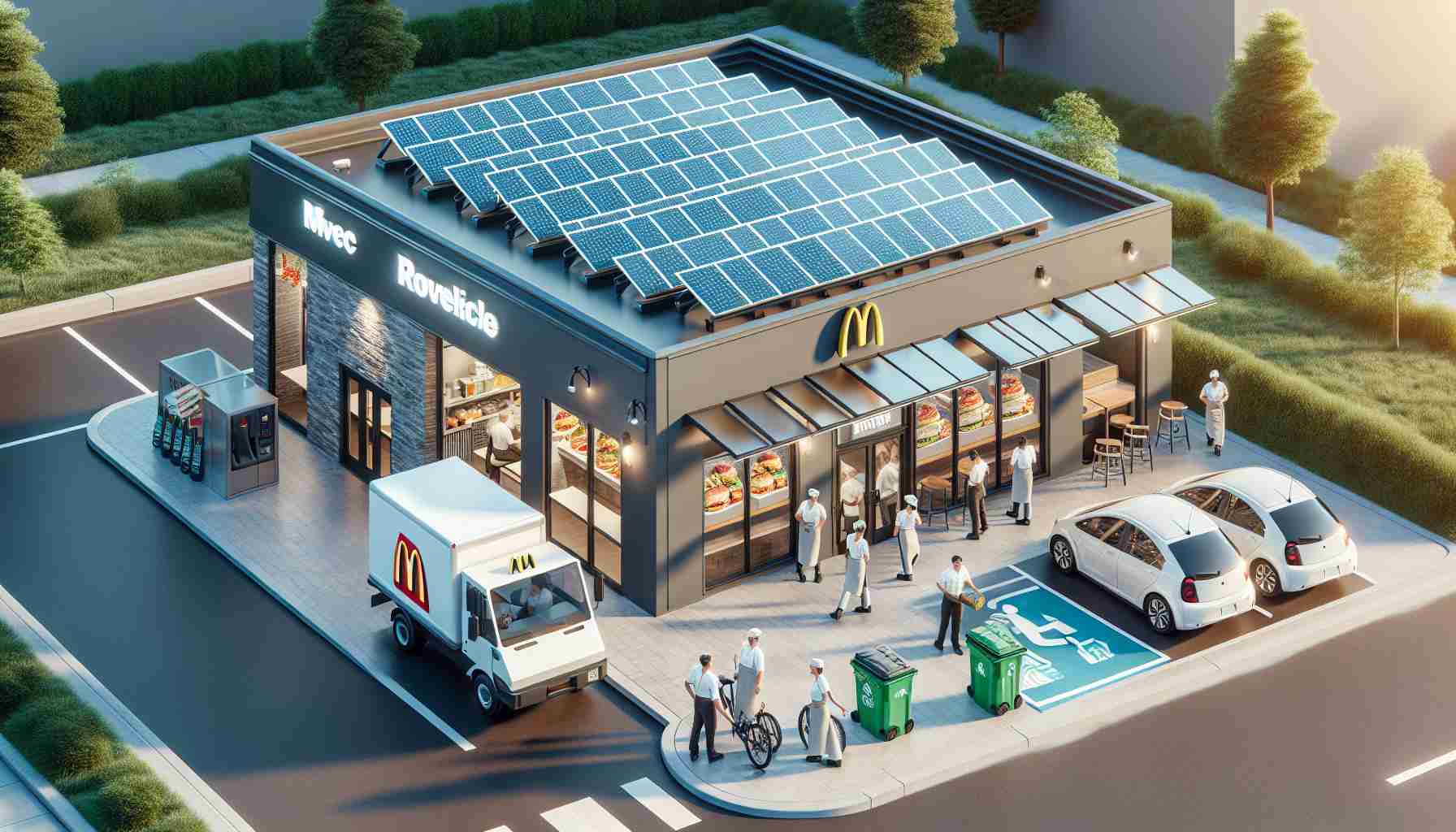McDonald’s Corporation experienced a shift in the market as it revealed its latest sustainability-driven earnings report. Despite a global dip in comparable sales, the fast-food chain is steering towards a brighter future by prioritizing sustainable practices.
Global comparable sales witnessed a slight decline, reflecting a change in consumer behavior towards eco-conscious choices. Contrary to analysts’ expectations, McDonald’s navigated this challenge with resilience. In the U.S., comparable sales surpassed consensus estimates, showcasing a positive trend that aligns with the company’s new environmentally friendly initiatives.
Embracing the shift towards sustainability, McDonald’s is leading the way in the industry by implementing eco-friendly packaging, sourcing local ingredients, and investing in renewable energy. This strategic pivot not only benefits the planet but also resonates with an increasingly environmentally conscious customer base.
As consumer preferences evolve, McDonald’s remains committed to adapting its business model to meet the demands of the modern era. By embracing sustainability, the iconic fast-food chain is not only securing its position in the market but also shaping a greener future for generations to come.
McDonald’s Sustainable Initiatives Driving Future Growth and Challenges Ahead
McDonald’s Corporation’s dedication to sustainable practices has not only positioned them as a leader in the fast-food industry but also set the stage for future growth. While the previous article highlighted the positive trajectory McDonald’s is on in terms of sustainability, there are additional facts, questions, challenges, and controversies to consider.
Key Questions and Answers:
1. How has McDonald’s reduced its environmental impact?
McDonald’s has implemented various measures like improving energy efficiency in restaurants, reducing waste through recycling programs, and promoting sustainable sourcing of ingredients to minimize its environmental footprint.
2. What challenges does McDonald’s face in its sustainability efforts?
One of the key challenges is ensuring that sustainable practices are consistently implemented across all franchise locations globally. Maintaining transparency and accountability throughout the supply chain can be a daunting task.
Advantages and Disadvantages:
Advantages:
– Enhancing brand reputation: Embracing sustainability can strengthen McDonald’s brand image and attract environmentally conscious customers.
– Cost savings: Sustainable practices like energy efficiency and waste reduction can lead to long-term cost savings for the company.
Disadvantages:
– Initial investment: Implementing sustainable practices may require significant upfront investments in infrastructure and training.
– Consumer perception: While many customers value sustainability, some may perceive eco-friendly initiatives as mere marketing tactics, posing a challenge in effectively communicating McDonald’s genuine commitment.
While McDonald’s strides towards sustainability are commendable, ongoing challenges and controversies must be addressed to ensure long-term success in their sustainability journey. By continually innovating and adapting, McDonald’s aims to drive positive change within the industry and beyond.
For more insights on sustainable practices in the food industry, visit McDonald’s.



